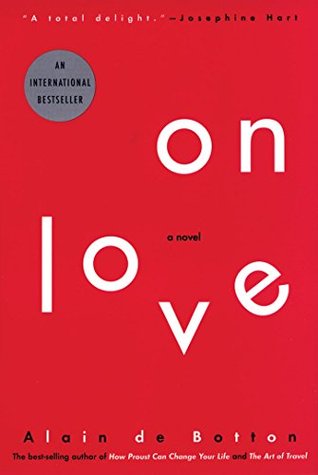More on this book
Community
Kindle Notes & Highlights
9. The problem with needing others to legitimize our existence is that we are very much at their mercy to have a correct identity ascribed to us.
we lack a character without others, then the other with whom we share our bed must be a skilled intermediary or we will end up feeling deformed and misrepresented.
Everyone returns us to a different sense of ourselves, for we become a little of who they think we are.
Even being loved implies a gross bias—a pleasant distortion, but a distortion nevertheless.
she was someone whose inner world I could imagine, but never directly experience.
We long for a love in which we are never reduced or misunderstood.
Because in resolving our need to love, we do not always succeed in resolving our need to long.
The possibility of an alternative love story is a reminder that the life we are leading is only one of a myriad of possible lives, and it is the impossibility of leading them all that plunges us into sadness.
maturity as the ability to give everyone what they deserve when they deserve it,
when we were unsure of who we were, we could hide beneath the comforting analysis of those who stood on the outside,
There is something appalling in the idea that a person for whom you would sacrifice anything today might in a few months cause you to cross a road or a bookshop to avoid.
the definitive end of my love for her would mean nothing less than the death of a part of me.
everything was so perfect, I first grew unavoidably aware of my lingering suspicions toward the present moment.
And yet something was wrong all the same—
It was simply the outcome of having, by a miracle of divine intervention, found a person whose company was more valuable to me than that of anyone else in the world. Such happiness was dangerous precisely because it was so lacking in self-sufficient permanence.
“All of man’s unhappiness comes from an inability to stay in his room alone,”
Lovers may kill their own love story for no other reason than that they are unable to tolerate the uncertainty, the sheer risk, that their experiment in happiness has delivered.
Do you love me enough that I may be weak with you? Everyone loves strength, but Do you love me for my weakness? That is the real test. Do you love me stripped of everything that might be lost, for only the things I will have forever?
I could not understand why things I was saying and that in the past had proved so attractive were now suddenly so irritating.
What have I done to deserve love? I can have done nothing, says the humble lover. What have I done to be denied love? protests the betrayed one, arrogantly claiming possession of a gift that is never one’s due. To both questions, the one who hands out love can only reply Because you are you—
It was the love of a woman who feels guilty for the fact she has ceased to feel affection,
Though we continued holding hands, I knew how Chloe and I would watch our bodies grow foreign to each other.
At the end of a relationship, it is the one who is not in love who makes the tender speeches.
First of all, one calls individual actions good or bad quite irrespective of their motives but solely on account of their useful or harmful consequences. Soon, however, one forgets the origin of these designations and believes that the quality good and evil is inherent in the actions themselves, irrespective of their consequences. . . .5
Love me! And for what reason? I had only the usual paltry, insufficient excuse: Because I love you . . .
I looked commuters in the face and wondered why they were unbothered by their own meaninglessness.
I felt that I had lost the ability to control my destiny and had witnessed a childish, petulant demon take charge of me, make me smile, encourage me to feel safe, and then smash me onto the rocks.
Cupid and Aphrodite.
I had angered the gods; the curse of Freud was upon me.
forget that I would be too dead to derive any pleasure from the melodrama of my extinction.


